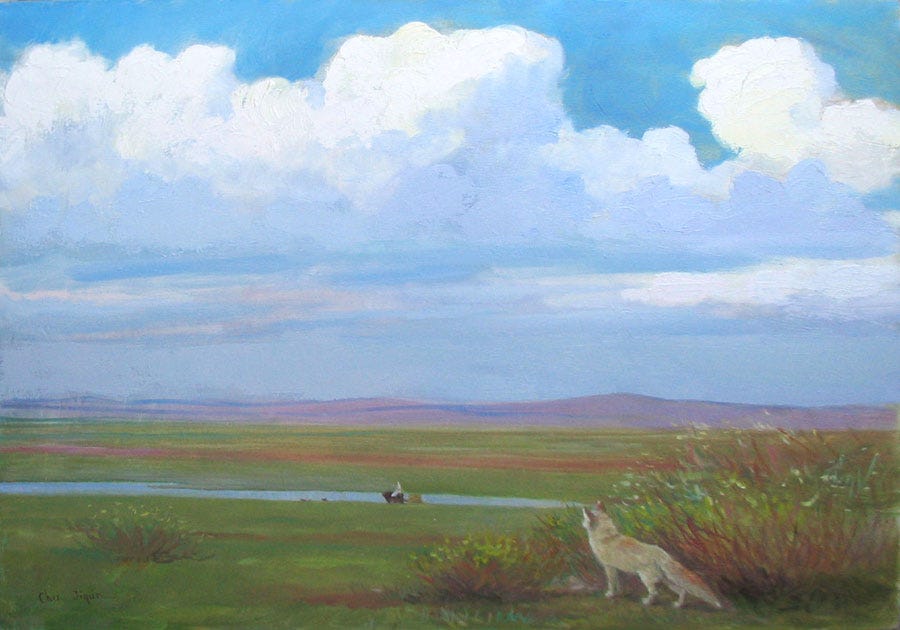Grass or A Poem on 'Parting on an Ancient Steppe' from the Songs of Chu Bai Juyi The grass on that great plain, How thick it is, how wild! Each year it fades again, Each year it flourishes. The fires on that great plain Can never burn it up; When spring comes, once again It kindles life afresh. The fragrance from the plain Invades the ancient roads; Its limpid, precious green Envelopes long-lost walls. My young friend, once again, I watch you ride away. A parting on the plain, How thick it is, how wild! 白居易 赋得古原草送别 离离原上草,一岁一枯荣。 野火烧不尽,春风吹又生。 远芳侵古道,晴翠接荒城。 又送王孙去,萋萋满别情。
The official title of this poem makes reference to the Songs of Chu, one of the founding song cycles of Chinese literature. But the poem is often referred to simply as Grass, because of the overwhelming metaphor that Bai (772-846) wields so skilfully. The poem is topped and tailed with two reduplicated words, 离离 li-li and 萋萋 qi-qi, both carrying a double meaning that encompasses sadness and departure and verdant growth. English doesn’t have anything quite like those two words, so I tried to capture the duality of meaning with "thick" and "wild."




I keep coming back to this on at this point in time. A parting is imminent
I like that painting by Chen Jiqun and it goes well with this poem. Also thanks for introducing Chen Jiqun - interesting style and and interesting backstory of their own.